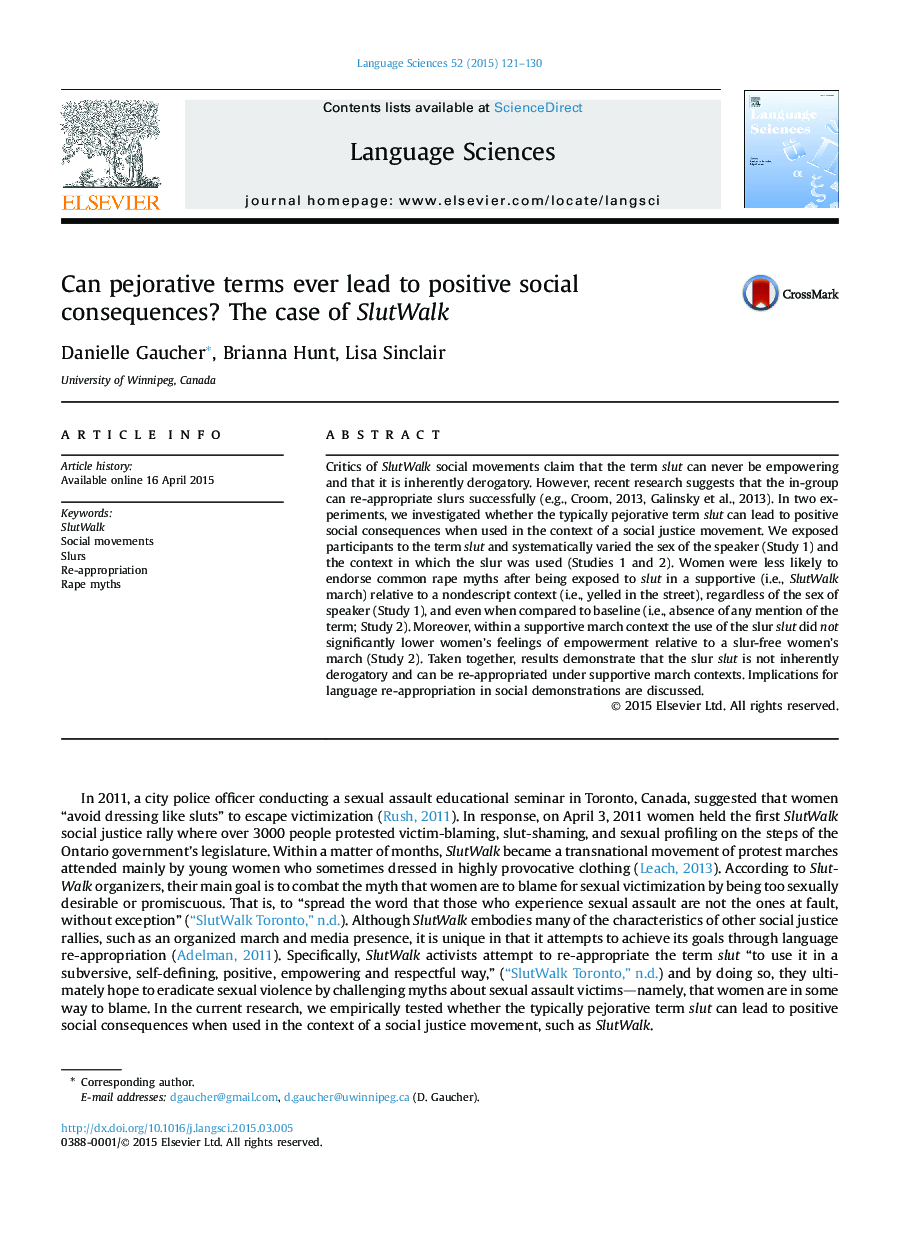| Article ID | Journal | Published Year | Pages | File Type |
|---|---|---|---|---|
| 1103018 | Language Sciences | 2015 | 10 Pages |
•An empirical investigation of whether the slur slut can lead to positive social consequences within a social justice march.•Women were less likely to endorse common rape myths after being exposed to slut in a supportive march context.•Results demonstrate that the slur is not inherently derogatory and can be re-appropriated under supportive march contexts.
Critics of SlutWalk social movements claim that the term slut can never be empowering and that it is inherently derogatory. However, recent research suggests that the in-group can re-appropriate slurs successfully (e.g., Croom, 2013, Galinsky et al., 2013). In two experiments, we investigated whether the typically pejorative term slut can lead to positive social consequences when used in the context of a social justice movement. We exposed participants to the term slut and systematically varied the sex of the speaker (Study 1) and the context in which the slur was used (Studies 1 and 2). Women were less likely to endorse common rape myths after being exposed to slut in a supportive (i.e., SlutWalk march) relative to a nondescript context (i.e., yelled in the street), regardless of the sex of speaker (Study 1), and even when compared to baseline (i.e., absence of any mention of the term; Study 2). Moreover, within a supportive march context the use of the slur slut did not significantly lower women's feelings of empowerment relative to a slur-free women's march (Study 2). Taken together, results demonstrate that the slur slut is not inherently derogatory and can be re-appropriated under supportive march contexts. Implications for language re-appropriation in social demonstrations are discussed.
